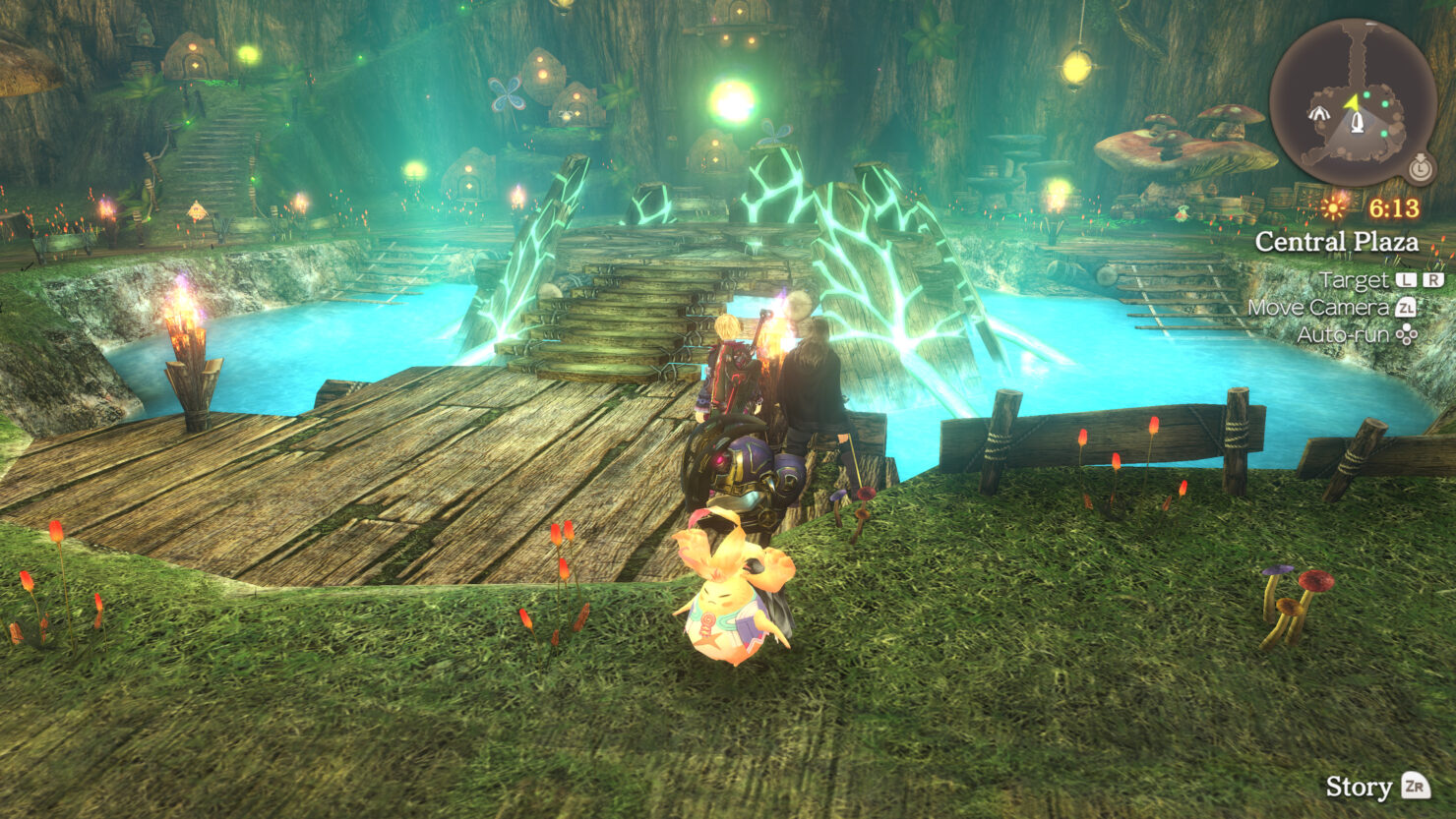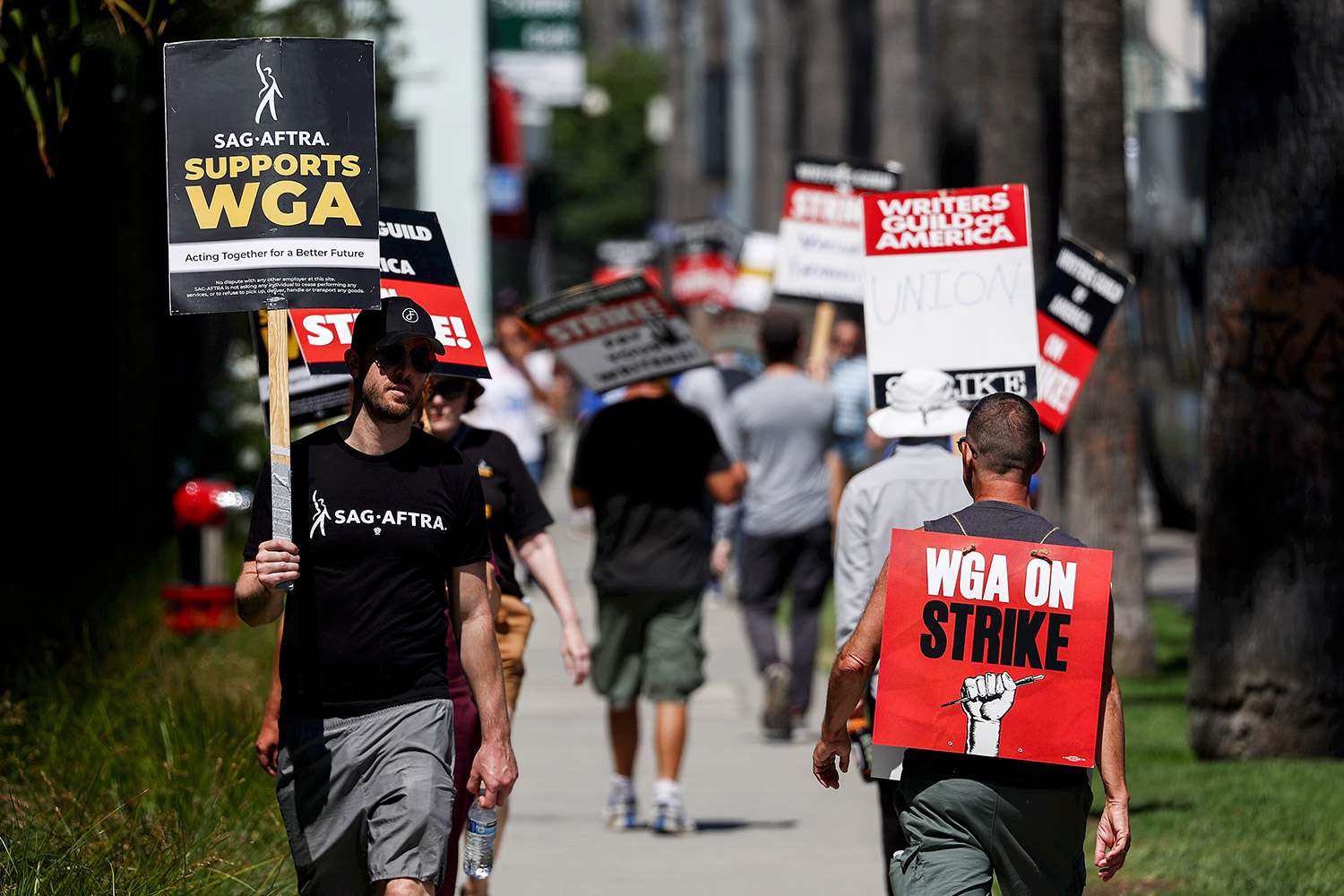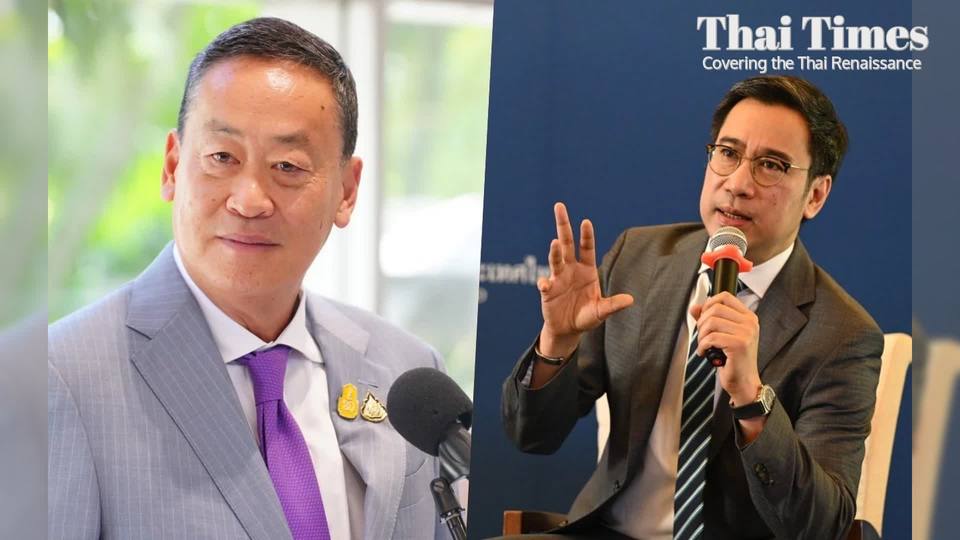Hollywood Production Halted: WGA And SAG-AFTRA Strike Update

Table of Contents
Key Demands of the WGA and SAG-AFTRA Strikes
Both the WGA strike and the SAG-AFTRA strike stem from deep-seated concerns about fair compensation, working conditions, and the ethical use of emerging technologies. The unions' demands represent a fight for the future of their respective professions in a rapidly evolving entertainment landscape.
WGA's Key Demands:
The Writers Guild of America's strike is driven by several key demands aimed at improving the lives and working conditions of television and film writers. These include:
- Fair Compensation in the Streaming Era: The rise of streaming services has significantly altered the revenue models for writers. The WGA is demanding fairer residuals and minimum staffing levels to ensure writers receive adequate compensation for their work, regardless of platform. This addresses the concerns of significantly reduced payments compared to the traditional network television model.
- Addressing the Use of AI in Writing: The increasing use of artificial intelligence in script generation is a major concern for the WGA. They are demanding safeguards to prevent the unauthorized use of AI to replace human writers and protect the creative integrity of their work. This includes negotiating clear guidelines and limitations on AI's role in the writing process.
- Improved Working Conditions and Health Benefits: The WGA is also seeking improvements in working conditions and health benefits for its members. This includes advocating for better benefits packages and protections against exploitative practices.
- Increased Transparency in Streaming Revenue Data: The lack of transparency regarding streaming revenue is another significant issue. The WGA demands greater transparency to ensure writers receive a fair share of the profits generated by their work. This includes access to data that clearly shows how revenue is generated and distributed.
SAG-AFTRA's Key Demands:
The Screen Actors Guild – American Federation of Television and Radio Artists (SAG-AFTRA) strike shares some common ground with the WGA strike, but also highlights issues specific to actors. Their key demands include:
- Fair Compensation and Residuals for Streaming Work: Similar to the WGA, SAG-AFTRA is demanding fairer compensation and residuals for streaming work. The shift to streaming has significantly impacted actors' earnings, and the union is fighting for a more equitable system.
- Regulation of AI's Use in the Entertainment Industry: SAG-AFTRA is particularly concerned about the use of AI to replicate actors' likenesses without their consent or compensation. They are demanding regulations to protect actors' rights and prevent the unauthorized use of their images and voices.
- Protecting Actors' Rights and Working Conditions on Set: SAG-AFTRA is fighting for improved working conditions on set, including better safety measures and protections against harassment and discrimination.
- Addressing the Issue of Self-Tape Auditions: The increasing reliance on self-tape auditions has raised concerns about actors' compensation and the overall audition process. SAG-AFTRA is seeking to address these issues and ensure fair treatment for actors throughout the audition process.
The Impact of the Hollywood Strike
The Hollywood strike is having a wide-ranging impact on the entertainment industry, extending far beyond the studios and production companies.
Economic Impact:
The strike's economic consequences are substantial and far-reaching:
- Loss of Revenue for Studios and Streaming Services: The halt in production is resulting in significant financial losses for studios and streaming services. Delayed projects mean missed release dates and lost revenue opportunities.
- Job Losses Across Various Sectors of the Industry: The strike is not only affecting actors and writers; it's also causing job losses in related sectors, including catering, transportation, and post-production. This creates a ripple effect throughout the economy.
- Economic Ripple Effects on Surrounding Businesses: The decreased activity in Hollywood is affecting local businesses that rely on the industry for revenue, creating a broader economic downturn in affected areas.
Creative Impact:
The creative impact of the strike is equally significant:
- Delays in Film and Television Production Schedules: Numerous projects are on hold, causing significant delays in production schedules. This creates uncertainty for future release dates and the overall production pipeline.
- Potential Impact on Upcoming Awards Season and Film Releases: The strike could significantly impact the upcoming awards season and film releases, potentially altering the landscape of competition and audience engagement.
- Uncertainty Surrounding Future Projects and Development: The uncertainty surrounding the strike's duration is creating hesitation for studios and production companies to greenlight new projects, potentially leading to a slowdown in creative development.
Potential Resolutions and Future Outlook
The resolution of the Hollywood strike remains uncertain, and several factors contribute to the complexities of the negotiations.
Negotiation Challenges:
Several significant challenges hinder the negotiation process:
- Significant Differences in Bargaining Positions: The gap between the unions' demands and the AMPTP (Alliance of Motion Picture and Television Producers) offers is substantial, making a swift resolution unlikely.
- The Complexity of Addressing New Challenges Presented by Streaming and AI: The rapid changes brought about by streaming and AI are creating new challenges that require innovative solutions and agreement on new industry standards.
- Potential for Long-Term Negotiations and Possible Further Escalations: The possibility of prolonged negotiations and potential further escalations cannot be ruled out, increasing the overall uncertainty and potential impact.
Possible Outcomes:
Several outcomes are possible, each with significant implications for the future:
- Successful Negotiation Leading to a Resolution and Resumption of Production: A successful negotiation would lead to a return to normalcy, but it would also require substantial changes to existing industry practices and agreements.
- Prolonged Strike with Significant Long-Term Consequences for the Industry: A prolonged strike could have severe consequences, including long-term financial losses, damage to the industry's reputation, and a reshaping of the labor landscape.
- Potential for Revised Industry Practices and Labor Agreements: Regardless of the immediate outcome, the strike could result in revised industry practices and labor agreements, permanently altering the relationship between studios and creative professionals.
Conclusion:
The Hollywood strike, encompassing both the WGA and SAG-AFTRA, represents a critical moment for the entertainment industry. The key demands regarding fair compensation, working conditions, and the ethical use of AI underscore significant challenges brought on by streaming and technological advancements. The outcome of these negotiations will have far-reaching effects on the future of filmmaking and television production. Stay informed on the latest developments in the Hollywood strike and the ongoing negotiations between the unions and the AMPTP, as the situation continues to evolve. Understanding the WGA strike and SAG-AFTRA strike is crucial to grasping the current state of the entertainment industry. For continued updates and analysis on the Hollywood strike, bookmark this page and check back regularly.

Featured Posts
-
 Is Liev Schreibers Daughter A Nepo Baby Her Paris Modeling Gig Explained
Apr 26, 2025
Is Liev Schreibers Daughter A Nepo Baby Her Paris Modeling Gig Explained
Apr 26, 2025 -
 Ten Years Later Construction To Continue On Worlds Tallest Abandoned Skyscraper Project
Apr 26, 2025
Ten Years Later Construction To Continue On Worlds Tallest Abandoned Skyscraper Project
Apr 26, 2025 -
 Spending Time With Karli Kane Hendrickson Event Occasion
Apr 26, 2025
Spending Time With Karli Kane Hendrickson Event Occasion
Apr 26, 2025 -
 New York Giants Shedeur Sanders As A Potential Solution
Apr 26, 2025
New York Giants Shedeur Sanders As A Potential Solution
Apr 26, 2025 -
 Ryujinx Emulator Project Ends After Reported Nintendo Intervention
Apr 26, 2025
Ryujinx Emulator Project Ends After Reported Nintendo Intervention
Apr 26, 2025
Latest Posts
-
 Will Nigel Farages Reform Uk Go Beyond Complaints
May 10, 2025
Will Nigel Farages Reform Uk Go Beyond Complaints
May 10, 2025 -
 Trumps Houthi Truce Shippers Remain Doubtful
May 10, 2025
Trumps Houthi Truce Shippers Remain Doubtful
May 10, 2025 -
 Wga And Sag Aftra Strike The Complete Hollywood Production Shutdown
May 10, 2025
Wga And Sag Aftra Strike The Complete Hollywood Production Shutdown
May 10, 2025 -
 Indonesias Foreign Exchange Reserves Plummet Rupiah Weakness Takes Toll
May 10, 2025
Indonesias Foreign Exchange Reserves Plummet Rupiah Weakness Takes Toll
May 10, 2025 -
 Thailands Economic Future The Search For A New Bot Governor
May 10, 2025
Thailands Economic Future The Search For A New Bot Governor
May 10, 2025
